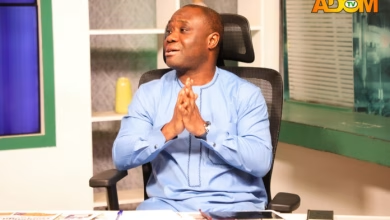The National Democratic Congress (NDC) has urged President Nana Addo Dankwa Akufo-Addo to halt further appointments to Ghana’s superior courts. This plea comes after Chief Justice Gertrude Torkornoo recommended five judges for nomination as Supreme Court Judges.
Speaking at a press conference in Accra on Thursday, NDC General Secretary Fifi Fiavi Kwetey expressed concern over the President’s alleged attempt to pack the courts with loyalists of the New Patriotic Party (NPP).
According to Kwetey, the President has already appointed a significant number of NPP loyalists to the judiciary, and further appointments would be unjustified. He emphasized that there are sufficient judges on the bench to handle judicial matters.
Kwetey stressed that any additional appointments with far-reaching implications for the country’s democracy should be left for the next President. He noted that general elections are imminent, and it would be fair to allow the next President to make such significant appointments.
The NDC General Secretary’s statement suggests that the party is wary of the President’s intentions and fears that he may be attempting to influence the judiciary for political gain.
Kwetey’s concerns have sparked a debate about the independence of the judiciary and the President’s role in appointing judges. Some have criticized the President for allegedly politicizing the judiciary, while others support his appointments.
The development has also raised questions about the timing of the appointments, with some arguing that it is too close to the elections. The NDC’s call for a halt to further appointments has added to the growing debate.
As the political landscape heats up ahead of the elections, the issue of judicial appointments is likely to remain a contentious one. The NDC’s stance has highlighted the need for transparency and accountability in the appointment process.
The NDC’s request to President Akufo-Addo to halt further appointments to the superior courts has sparked a significant debate about the judiciary’s independence and the President’s role in appointing judges.
The development has highlighted the need for transparency and accountability in the appointment process, especially in an election year. The outcome of this development remains to be seen, but it has undoubtedly brought attention to the critical issue of judicial appointments and their implications for Ghana’s democracy.
